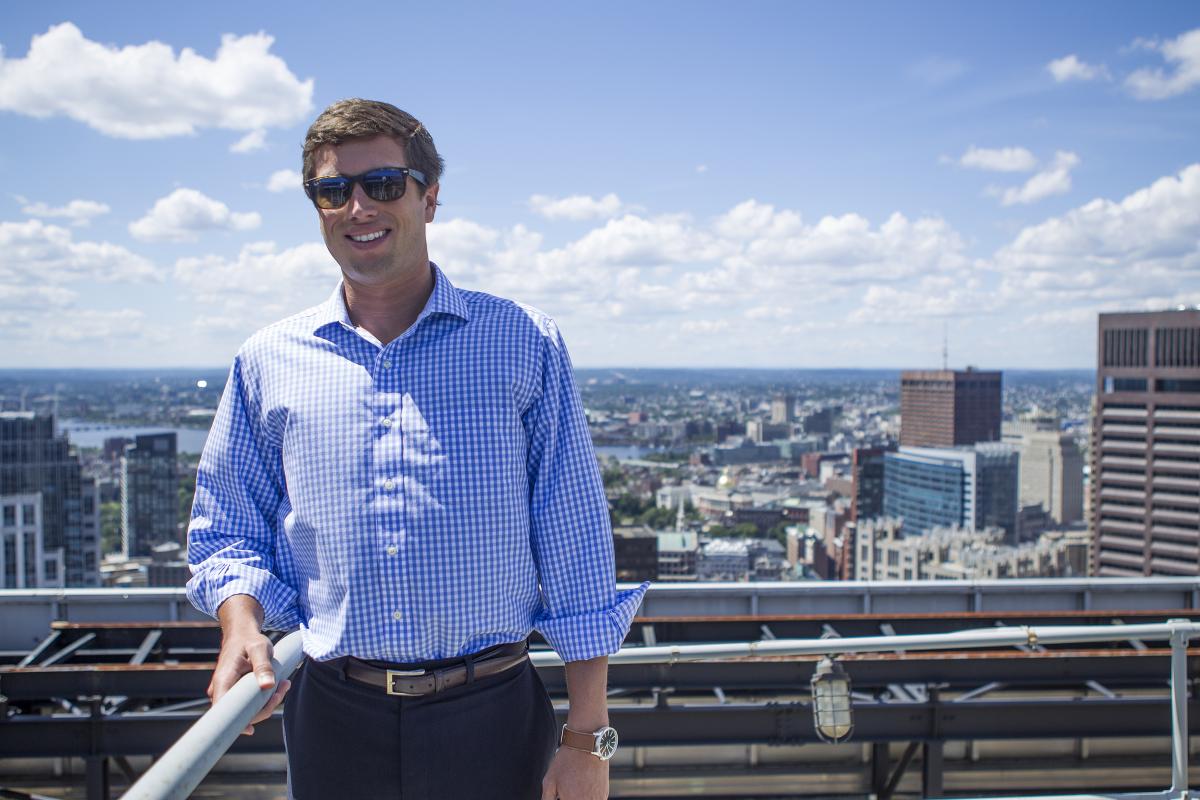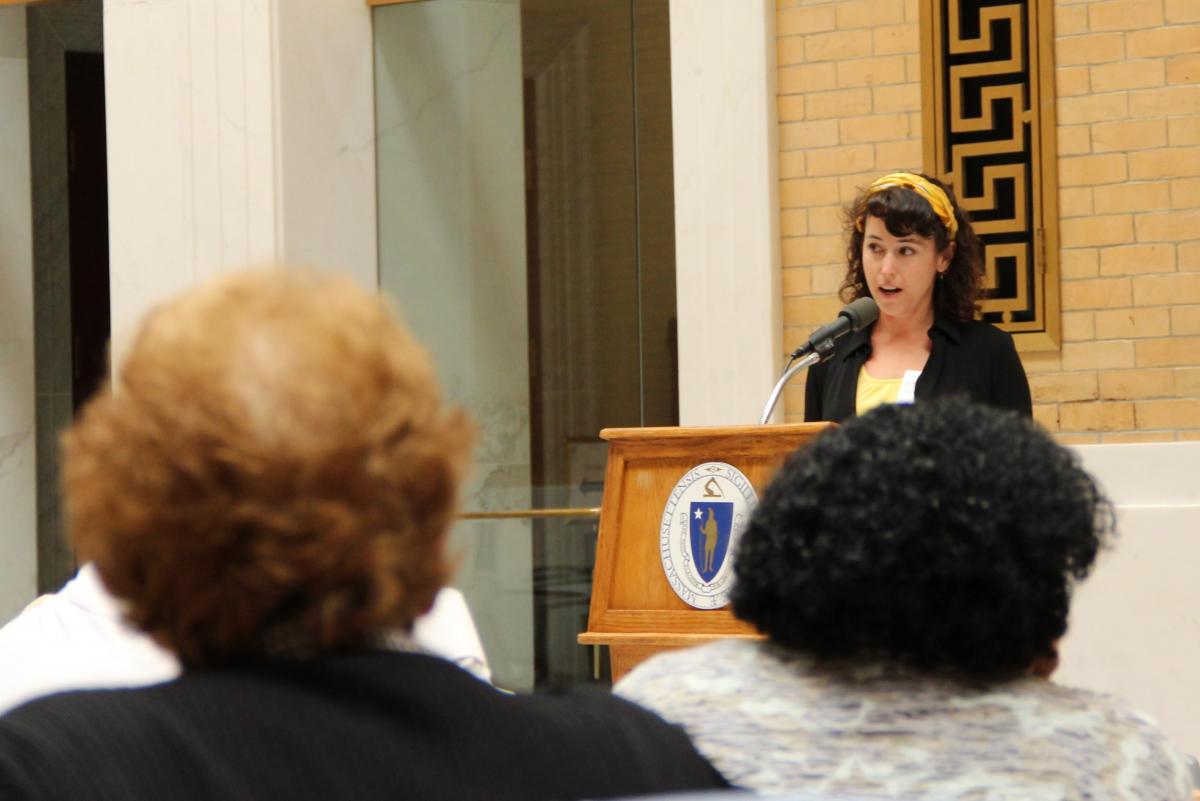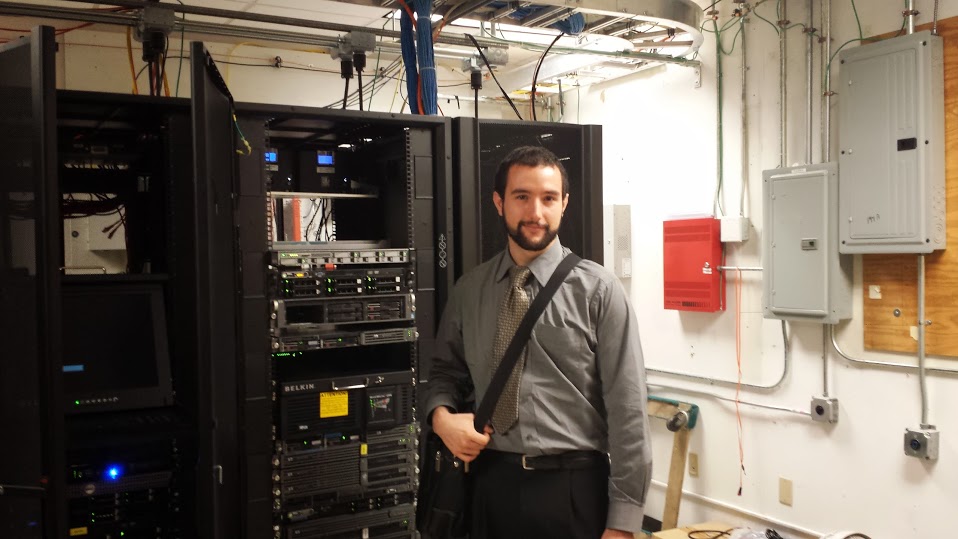EDF Climate Corps fellow | September 30, 2013
This summer, several organizations from the Boston area hosted EDF Climate Corps fellows to further their energy management initiatives. Read below our interviews of three EDF fellows who worked in Boston, putting their know-how and experience to work for the environment.

Name: Michael Lawrence
Hometown: Baltimore, MD
School: Vanderbilt University Owen Graduate School of Management
Host Organization: Federal Reserve Bank of Boston
Q: What is an interesting fact about you?
A: I developed a business plan last year to create my own salad shop that uses organic, locally sourced and responsibly raised ingredients. I think I’m still going to run with it. I’ve also swum against Michael Phelps.
Q: What are you working on this summer?
A: I’m completing a plug load assessment to determine the benefits of implementing smart plug strips across the 1,200-person organization. Also, I’m analyzing the proposed replacement of the existing hot water system with a solar powered one. Finally, I’m developing an aggregate dashboard that would provide a high level view of the Bank’s consumption and certain sustainability initiatives to paint a clear picture for executives making capital planning decisions.
Q: What is one thing you’ve learned this summer?
A: The Bank certainly has a strong commitment to sustainability. The Boston Fed has emerged as a leader in the Federal Reserve System, and continues to advocate for change and innovative green measures. Energy efficiency projects can act as a catalyst for other missions, i.e. waste management. As part of EDF Climate Corps interacting with other Feds and other Boston-based sustainability organizations, I’ve learned the importance of creating a strong network to advance your knowledge and your goals.
Q: What has been the best part for you about working at the Federal Reserve Bank of Boston?
A: Getting exposure to how the Federal Reserve works. The people here are really great. It’s been rewarding to observe how our central bank works and understand the logistics that go behind the objectives they strive to achieve.
Q: What is the mark you want to leave on the world?
A: To continue to help people connect with one another. I want to help others develop and create relationships that are beneficial to themselves and the world.

Name: Ashley Roberts
Hometown: Kalamazoo, MI
School: Appalachian State University
Host Organization: Boston Housing Authority (BHA)
Q: What is an interesting fact about you?
A: My usual work is in electron and ion microscopy.
Q: Why did you join EDF Climate Corps?
A: I was really attracted to the program because it deals with the big issues of climate change and energy use, yet approaches these topics in a very concrete and results oriented way. I felt this would be a great platform to learn more about how business strategies can be used to help the environment.
Q: What are some of the projects you’re working on?
A: I’ve been working alongside a team of directors from the many BHA departments in developing a Strategic Sustainability Plan for the entire Housing Authority. I’m also working to create a climate preparedness plan for developments in danger of flooding as sea levels continue to rise and storms intensify. Additionally, I am identifying the energy savings potential at various developments within the BHA portfolio and looking for financing mechanisms that can help cover the initial costs of energy efficiency projects.
Q: What is one thing you’ve learned this summer?
A: I’ve learned a lot more about the varying perspectives on energy efficiency and energy conservation. Most people seem to be open to change in this area, which is reassuring, but they sometimes struggle in seeing concrete measure on how they can make this happen. Programs like those offered by EDF directly address this need by giving practical, executable advice based on facts.
Q: What is the best piece of advice you’ve received?
A: When working in the residential sector, especially with public housing, it is especially important to keep the focus on sustainability as a whole. Energy efficiency in public housing is much more about the entire system of buildings, people and community with the top priorities being health, safety and durability. Like many industries, the focus on energy conservation and efficiency in housing is not the core functionality, but in almost all cases, these aspects are interdependent and linked to one another. From an institutional standpoint, without the support and buy-in from housing authority decision makers, residents and policymakers any type of sustainability measure, including energy efficiency, will not be successful.

Name: Santiago Perez
Hometown: Mexico City, Mexico
School: Baruch College of the City University of New York
Host Organization: Boston Public Health Commission
Q: What is an interesting fact about you?
A: I co-founded an NGO that works in Kenya to provide legal, medical and psychological support to survivors of gender-based violence.
Q: What are some projects you’re working on?
A: I’m overseeing the digging of a geothermal well (i.e. ground-source heating) to reduce the heating and cooling load of one of the campuses. I also obtained and am currently helping to roll out an energy management system for the whole organization to help better manage its energy use. I’m in the process of carrying out a solar hot water assessment for several of the facilities, and there are a number of other projects.
Q: What is one thing you’ve learned this summer?
A: A great deal of technical information pertaining to HVAC, lighting, financial planning and other areas key to energy efficiency. It has expanded my toolkit considerably.
Q: What has been the best part about working for the Boston Public Health Commission?
A: The fact that it’s a public service company, so there is a much more direct connection between savings achieved and jobs created or preserved (rather than bigger profits and dividends). Energy efficiency opportunities were many and large here, which meant I was able to achieve a lot in a short amount of time. It also allowed me to be involved in the city’s climate change adaptation planning process, which was very rewarding.
[[{"fid":"1653","view_mode":"wysiwyg","fields":{"format":"wysiwyg","field_file_image_alt_text[und][0][value]":"Adidas Group","field_file_image_title_text[und][0][value]":"Adidas Group"},"type":"media","attributes":{"alt":"Adidas Group","title":"Adidas Group","class":"media-element file-wysiwyg"}}]]Q: What is the mark you want to leave on the world?
A: I think it comes down to leaving it better than you found it. Climate change puts a serious deadline, and I hope to be a part of our ability to meet it. It’s no longer a matter of who you want to be, but who you want your kids to be able to be in the world we leave behind.
This post is a part of our "Interviews with Tomorrow's Leaders" series. Stay tuned for more interviews with our 2013 EDF Climate Corps fellows!
About EDF Climate Corps
EDF Climate Corps (edfclimatecorps.org) taps the talents of tomorrow’s leaders to save energy, money and the environment by placing specially-trained EDF fellows in companies, cities and universities as dedicated energy problem solvers. Working with hundreds of leading organizations, EDF Climate Corps has found an average of $1 million in energy savings for each participant. For more information, visit edfclimatecorps.org. Read our blog at edfclimatecorps.org/blog. Follow us on Twitter at twitter.com/edfbiz and on Facebook at facebook.com/EDFClimateCorps.